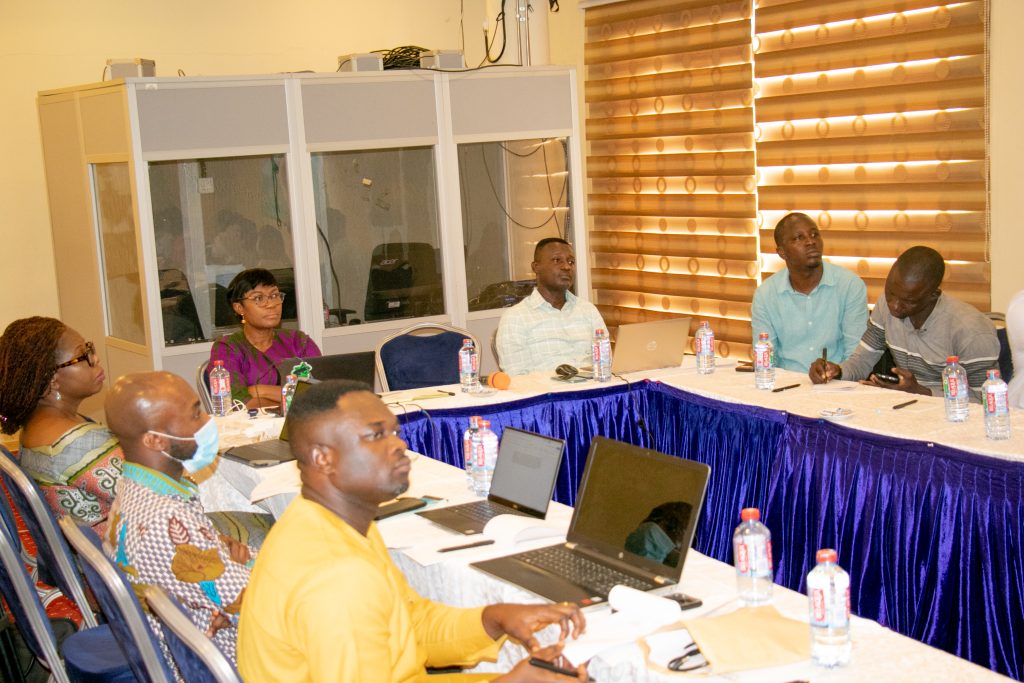By Stanley Senya
Accra, Feb. 23, GNA – Solidaridad, an international civil society organization, under its RECLAIM Sustainability programme, has organised a workshop to validate a draft Child Labour Eradication Framework (CLEF) for the small-scale mining sector.
In collaboration with Minerals Commission, Solidaridad, the Framework seeks to reduce children’s involvement in mining activities by 50 percent by 2027.
This will be achieved by providing a concrete and coordinated outline for implementing interventions that give effect to the provisions of the 1992 Constitution, the Children’s Act, 1998 (Act 560), the Minerals and Mining Act, 2006 (Act 703) and the Mining Sector Policy, as well as other legal instruments that address various forms of Child Labour.
A statement issued in Accra by Solidaridad said Children’s involvement in the Artisanal and Small-scale Gold Mining (ASGM) sector was a major challenge in Ghana as the Ghana Living Standards Survey Round 6 (GLSS6), Child Labour report indicated that 5,677 Children were working in artisanal goldmines in hazardous and sometimes life-threatening conditions.
It said the phenomenon had adversely affected their school enrollment and attendance while exposing them to mercury, with its attendant lifelong devastating health impacts.
“The urgency of this Framework is underpinned by the increasing reports of child injuries and death associated with artisanal small-scale gold mining (ASGM), commonly called ‘galamsey,’ it said.
Madam Rosemary Addico, Programme Manager Responsible for Gold at Solidaridad West Africa said responsible mining did not support the use of children in any form of mining work, even if it was a means of survival.
She said that was why, as an organization, they supported the eradication of Child Labour in the mining sector through the Child Labour Eradication Framework.
The participants at the workshop discussed a set of priority actions including community-based and supply chain interventions and issues identified in the draft framework that needed to be addressed urgently.
One of the key issues discussed was poverty, a major driver of Child Labour in the mining sector.
The Framework proposed an integrated and sustainable approach that addressed issues concerning poverty, improved access to and quality of education, and mobilizes public support to respect the rights of children.
The next steps after the validation workshop will be to deepen advocacy on Child Labour, guided by the Child Labour Eradication Framework (CLEF).
This, amongst other things, will include a sensitization drive in mining communities around the country and engaging the government, small-scale mines, civil society organizations, and media to embark on community and supply chain interventions that address the prevailing poverty issues.
Mr Yaw Britwum Opoku, an Advisor on Minerals Supply Chains at Solidaridad West Africa, said there was the need for value chain actors to unanimously accept the framework as it invariably ensured the sustainability of the sector.
“With the increasing demand for responsible gold production and a high premium on preventing and reducing Child Labour by regulators, the Framework will ensure that Ghana’s gold on the international market meets these standards,” Mr Opoku said.
Promoting responsible gold mining Solidaridad, under the RECLAIM Sustainability programme, has been working towards an inclusive and responsible global gold value chain, where artisanal small-scale gold miners work under legal and safe conditions, and earning a living income with improved bargaining positions.

To improve the bargaining position of ASM miners, the programme advocates for an improved and optimized formalization process in Ghana, where fair value distribution, safe working conditions, Child Labour, and deforestation and pollution are central to the agenda of policy-makers.
The Child Labour Eradication Framework, which aims to develop and implement holistic multi-stakeholder interventions that will lead to the reduction (by 50 per cent) of Child Labour in the mining sector by 2027, aligns with Solidaridad’s vision for the ASGM sector.
The RECLAIM Sustainability the programme is funded by the Ministry of Foreign Affairs of the Netherlands and implemented by Solidaridad West Africa and TrustAfricain Ghana, Cote d’Ivoire and Sierra Leone.
GNA